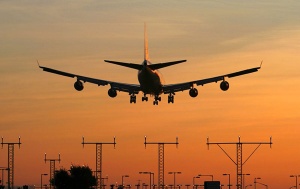Coalition government rules out new London runways

The UK’s new coalition government has cancelled plans to build a third runway at London Heathrow airport. It will also refuse extra runways at London’s other two main airports, Gatwick and Stansted, as the leaders promised that they would work together to build a new low-carbon economy.
Environmental campaigners reacted warmly to the news. Ben Stewart of Greenpeace said: “This is fantastic news that will be met with great relief.
“A third runway at Heathrow was always a bizarre proposal that made no sense to anybody who understood the impact aviation has on our climate.
However the aviation industry believes it will be bad for business.
A British Airways spokesperson said the “incoming Government is well aware of our view and has taken a different position. We are content for matters to rest there.”
ADVERTISEMENT
Scrapping the third Heathrow runway was expected but the new administration has widened the block on new landing strips to Gatwick and Stansted. That potentially reduces the value of the Sussex airport to its new owners – Global Infrastructure Partners – and that of Stansted to BAA.
The incoming government will also scrap air passenger duty with a tax on the plane, not passenger.
This is likely to mean that full flights (often budget airlines) will get cheaper and poorly-used flights more expensive.
Andy Harrison, easyJet’s chief executive, welcomed the proposal to “reform the daft APD, which taxes full planes but not empty ones. It’s now time to act and make Air Passenger Duty a fairer and greener tax without increasing the tax burden on the flying public.” He added that easyJet would carry 50m passengers this year “compared to BA who are only expected to carry 30m”.
But BA was less enthusiastic. A spokesman for the airline said: “The existing APD is not used to fund environmental or infrastructure benefits and there is no guarantee that a flight-based tax would.”
BA maintained its position that “aviation’s impact on climate change is most effectively addressed by the inclusion of airlines within the EU emissions trading scheme”, due to take place in 2010.

